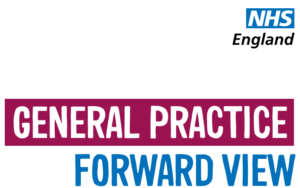- This Week in Managed Care: January 6, 2017 (ajmc.com)
Laura Joszt, with The American Journal of Managed Care. Welcome to This Week in Managed Care, from the Managed Markets News Network.
- Top 10 Focus stories from 2016 (pharmacist.com)In order, these are the stories that interested readers the most in 2016
- FDA announces major change in pharmacy inspections - In July, FDA issued a notice announcing that they are changing procedures for inspections of human drug compounders. FDA only gave about a month from the announcement—August 1—for the notice to be effective. APhA government affairs identified troubling language in the notice as follows: FDA will still undertake inspections of 503A facilities, rather than complying with current statute; FDA still intends to include CGMPs on Form FDA-483s, potentially for 503A pharmacies.
- New sleep recommendations for most age groups - Good sleep is a must. In March, the National Sleep Foundation revised all recommended sleep ranges, which are age-specific and based on a systematic review of the current scientific literature. Overall, wider appropriate sleep ranges for most age groups are recommended by NSF.
- CDC releases updated vaccine recommendations for 2016–17 influenza season - Updated vaccine recommendations for the 2016–17 influenza season included the continuation to have everyone aged 6 months and older without any contraindications receive a routine annual influenza vaccine. In addition, only injectable inactivated influenza vaccine and recombinant influenza vaccine should be used. In the recommendations, two new influenza vaccines were approved since last season and finally, a few of the recommendations for administering influenza vaccine in those with a history of egg allergy have been modified.
- Zika virus disease: Frequently asked questions for pharmacists and their patients - Zika virus disease was on everyone’s minds this year, including pharmacists. Here were some frequently asked questions from February as the disease was beginning to emerge.
- Newer antihistamines can cause adverse reactions in children - In a study published in the Archives of Disease in Childhood, Dutch researchers found that adverse reactions from second-generation antihistamines can occur in children—a finding that gave many pause since these second-generation antihistamines were developed in an attempt to decrease adverse effects from first-generation antihistamines.
- FDA: Antibacterial soaps should be avoided - In October, FDA put out a striking announcement to ban 19 active ingredients in antibacterial soaps and body washes, including triclosan and triclocarban—the two most commonly used ingredients. The reason: These active ingredients have little science to back up their effectiveness and could actually do more harm than good.
- New federal overtime rules likely to have implications for pharmacy residents - The Department of Labor issued a final rule that took effect on December 1. It stated that employers must increase minimum salary for certain employees to keep them exempt from wage regulations, such as those related to overtime pay. The final rule does not exempt pharmacy residents, meaning they could see a bigger paycheck going forward.
- FDA approves brand-name change for vortioxetine - FDA decided to change the brand name for vortioxetine. Starting in June, Brintillex switched its labeling to Trintellix in order to avoid errors associated with the similar-sounding name of the medication Brilinta.
- CDC issues health advisory on beginning of severe flu season - Back in February when flu season was just beginning to hit, CDC issued a health advisory stating that severe influenza illnesses were reported. They also took the opportunity to encourage clinicians to continue with efforts to vaccinate patients against the influenza virus.
- With Obama’s signature, expansive opioid policies become law - President Barack Obama signed legislation in July to provide a much-needed framework for opioid abuse prevention and treatment. The legislation, called the Comprehensive Addiction and Recovery Act of 2016, also recognized pharmacists as key players in the fight against the opioid epidemic.
- E.U. Agency in Limbo as Hidden Costs of ‘Brexit’ Continue to Mount (nytimes.com)
When it switched offices in London not long ago, the European Medicines Agency signed a 25-year lease on a shiny new building in the east of the city...Just two years later, the organization is preparing to relocate again, but this time its likely move has sent tremors through Britain’s pharmaceutical industry and raised fears over public safety...the European Medicines Agency...will almost certainly have to leave Britain, just one of the many unanticipated consequences of the vote that is forcing the country to unscramble 40 years of European integration...cities...are scrambling to lure its team of experts, who license drugs and monitor their use for safety...Most worrisome is an internal assessment suggesting that relocating the agency might mean losing up to half its personnel...With a full workload of applications in the pipeline, the organization is already close to the breaking point…If it loses more than 15 percent of its experts….the agency will probably not be able to maintain current schedules for licensing new drugs and monitoring existing ones...
- Editor’s Corner: Signs point to a surprising pharma new year (fiercepharma.com)
...trends and issues we expect to drive the industry—and related debate—in the coming year. The broad themes aren’t tough to identify. But predicting the specifics, some of them quite important, is, this year, less like reading a crystal ball and more like picking up a Magic 8 Ball...drugmakers will rely on M&A of one sort or another to fuel growth and augment pipelines. As has been pharma’s practice recently, sales and spinoffs will also play a role….just how much cash buyers have to play with depends on an as-yet-unmade decision: Whether U.S. companies can bring home their offshore cash tax-free. Outlook good, which means billions more dollars for U.S. deals and, probably, higher prices as that cash chases a limited number of solid acquisition targets.
- biosimilars, the threat to biologic drug prices and monopolies that’s been on its way for years.
- Manufacturing brought a round of surprises in 2016 as the FDA rejected a series of new drugs because of questions about—or criticisms of—the plants where they’d be produced.
- pharma’s shift to specialty drugs from mass-market blockbusters hasn’t put a dent in DTC budgets, despite the fact that their target populations are far smaller.
- Signs point to definitely when it comes to the drug pricing debate continuing into 2017, but it’s far from definite where that debate will go next.
- Life-extending capacity of new cancer drugs varies widely (reuters.com)
Drugs recently approved around the world to fight cancer increased patients' overall survival, but benefits vary depending on the drug, a new study shows...Researchers looked at the 62 cancer drugs approved in the U.S. and Europe between 2003 and 2013 and found they extended survival by an average of about 3.5 months...a third of the drugs lacked evidence to suggest they increased survival when compared to alternative treatments...results point to the notion that new cancer treatments may not always provide patients with greater clinical benefits, or lower risks, over existing treatments...The risk-benefit ratio of new drugs is especially important if people are concerned, for example, about whether the cost of a drug would make it difficult for a person to complete the treatment regimen...
- Healthcare fraud: A look back at a pivotal year (fiercehealthcare.com)
From a healthcare fraud enforcement perspective, 2016 was nothing short of a dynamic year...It was punctuated by the arrival of several important trends within the addiction treatment, post-acute care and compound pharmaceutical industries…It also featured a Supreme Court ruling on a False Claims Act legal theory, and a changing enforcement landscape in the aftermath of the Yates memo...As 2016 comes to a close, let's look back at some of the fraud trends that emerged—or in some cases intensified—over the last 12 months.
- Impact of the Yates memo
- Government targets post-acute care providers
- Big healthcare fraud busts continue
- Compound pharmacies under fire
- OxyContin marketing concerns revisited
- Addiction treatment gains ground, raises concerns
- Data continues to influence fraud detection
- EpiPen price hikes lead to overpayment settlement
- Medicare Advantage overbilling resurgence
- Supreme Court rules on implied certification
- New precision medicine tool helps optimize cancer treatment (worldpharmanews.com)
Columbia University Medical Center researchers have created a computational tool that can rapidly predict which genes are implicated in an individual's cancer and recommend treatments. It is among the most comprehensive tools of its kind, and the first that incorporates a user-friendly web interface that requires little knowledge of bioinformatics...The researchers found that iCAGES identified personal cancer "drivers" 77 percent of the time when presented with a pair of randomly chosen driver genes and non-driver genes, compared with about 51 percent for other computational tools... Cancer "drivers" can vary from patient to patient, and there are no practical clinical tools for predicting which variants in an individual's genome are driving his or her disease and which are present but not causing disease...Dr. Wang...developed a computational tool called integrated CAncer GEnome Score…(it) analyzes the patient's entire genome, comparing it to the genomic sequence of the patient's tumor to identify possible cancer-causing variants. Next...cross-references these variants to databases of known cancer-causing genes, using statistical analyses and machine learning techniques to prioritize the most likely driver genes. Finally...matches the variants to FDA-approved and experimental drug therapies that specifically address those variants or genes. The entire process takes about 30 minutes...
- NHS England announces extra £112m for expansion of GP-based pharmacist scheme (pharmaceutical-journal.com)
The roll out of the pilot will see a further 1,500 pharmacists working in general practice by 2020-2021...NHS (National Health Service) England has announced an additional £112m ($137m) investment to roll out a pilot scheme embedding clinical pharmacists in GP surgeries...a commitment set out in the ‘General practice forward view’...The expansion...follows a “successful” pilot that involved 490 clinical pharmacists working in approximately 650 general practices across 90 sites...The goal of the scheme is to ease pressure on the NHS by increasing capacity in general practice, which will free up GP time as well as ensure safer prescribing by offering specialist advice and support for patients with chronic diseases…The success of the initial pilots has shown the benefits of having more clinical pharmacists in general practice, reducing GP workload and helping ensure patients are seen by the right professional in a more convenient and timely way...the scheme was welcomed by the Royal Pharmaceutical Society, which says it is a “significant step” towards its shared vision with the RCGP ( Royal College of General Practitioners) that every GP practice should have access to the expertise of a pharmacist...
- Thousands of medical marijuana dispensary applications possibly leaked in Nevada (lasvegasnow.com)
The state of Nevada’s government website has potentially exposed the personal data on over 11,700 applicants for dispensing medical marijuana in the state...each application, eight pages in length, includes the person’s full name, home address, citizenship, and even their weight and height, race, and eye and hair color. The applications also include the applicant’s citizenship, their driving license number, and social security number...A Google search done by a man in Dallas led to the discovery of the problem. Justin Shafer said he discovered the breach Tuesday night while he was looking to see if any government websites had errantly posted social security numbers online. Shafer said he noticed one of the completed applications pop up in the search results with a social security number in plain view...Many of the people affected are employed by members of the Nevada Dispensary Association…Riana Durrett, executive director of Nevada Dispensary Association...says she's been assured the state is focusing all of its efforts to fix the breach...The state disabled the website...as a precaution...
- Inside the DEA: A chemist’s quest to identify mystery drugs (hosted.ap.org)
New drugs were appearing in the lab every other week, things never before seen in this unmarked gray building in Sterling, Virginia. Increasingly, these new compounds were synthetic opioids designed to mimic fentanyl...The fentanyl-like drugs are pouring in primarily from China...an assertion Beijing maintains has not been substantiated. Laws cannot keep pace with the speed of scientific innovation. As soon as one substance is banned, chemists synthesize slightly different, and technically legal, molecules and sell that substance online…Right now we're seeing the emergence of a new class - that's fentanyl-type opioids...Based on the structure, there can be many, many more substitutions on that molecule that we have not yet seen...Entrepreneurial chemists have been creating designer alternatives to cannabis, amphetamine, cocaine and Ecstasy for years. But this new class of synthetics is far more lethal...Today, it is almost as easy to order synthetic opioids on the open internet as it is to buy a pair of shoes...Payments can be made by Western Union, MoneyGram or Bitcoin, and products are shipped by DHL, UPS or EMS - the express mail service of China's state-run postal service. As the lines between licit and illicit commerce blurred, it became possible for just about anyone with internet access to score an ever-changing array of lethal chemicals...








